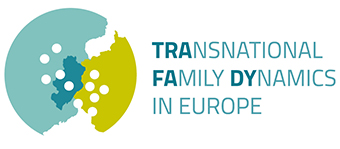The summer school will be hosted by Odisee, Brussels, Belgium. Working Group 2 is responsible for curating this years summer school.
Like 2023, it will be internationally acknowledged lecturers, experienced guest speakers, interactive workshops engaging practitioners from the field and off-campus excursions that will make this Summer School informative AND fun.
On the program
Families that are geographically dispersed due to economic or forced migration; families in which a member works abroad almost continuously; families in which a (mostly) young person lives abroad for a longer period for study or internship,… Obviously, the realities of transnational families are very different. By attending this summer school, participants will get an improved understanding of the growing, rapidly changing phenomenon and dynamics of transnational families.
The theoretical basis in lectures and workshops will be offered by an internationally composed team of specialized psychologists and social scientists. Field visits of organizations working with transnational families, refugee families and children will confront the participants with relevant methodologies and how to apply them in this context.
Target Group
- Undergraduate students (2nd, 3rd and 4th grade) of social education who want to develop a broader view on social work and counselling work with transnational families, both on a theoretical and methodological level. All students participating, will get 3 ECTS-points. In order to receive them, all parts of the programme are mandatory.
- (Young) professionals, early career investigators and practitioners from social
work and welfare organizations. - Researchers in the field of transnational families and the changing dynamics.
Practical Information
Classes will take place at a small and pleasant campus in Schaarbeek in the North of Brussels. Using public transport, the city centre and main tourist attractions are only 15 minutes away.
Lodging and travel costs are not included in the price of this summer school. If you like to stay in contact with the other participants during the evenings or free moments, we recommend you to stay in one of the proposed budget friendly ho(s)tels. A list of possibilities will be available after registration.
Language: English
Registration fee
- FREE: Students Odisee
- FREE: Participants from the COST-network (after approval). If your subscription is approved, you will get a daily grant to cover all expenses.
- 250 euros: Other students
- 400 euros: Professionals (application after 26 April)
Early bird discount: 350 euros – Professionals (apply before 26 April)
Register here!
▶ Click here to submit your application!
More TraFaDy Training Schools
-
26 June – 05 July 2023: International Summer School 2023
Learn about the growing, rapidly changing phenomenon and dynamics of transnational families! The summer school will take place in Brussels, Belgium Join us for an International Summer School in the heart of Europe. Internationally acknowledged lecturers, experienced guest speakers, interactive workshops engaging practitioners from the field and off-campus excursions will make this Summer School informative…
